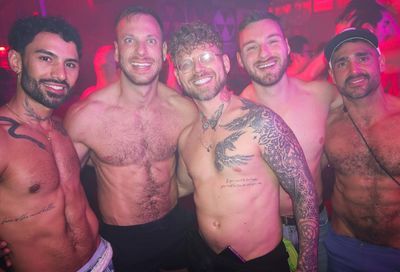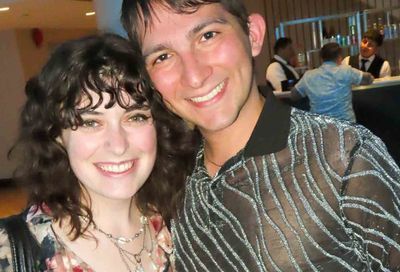Benjamin Franklin said in 1787 that the Constitutional Convention had given America “a republic, if you can keep it.” We have struggled for 226 years to answer him. The young republic was decidedly imperfect, with human chattel and women disenfranchised. As Rep. Barbara Jordan said during impeachment hearings against President Nixon in 1974, it took a “process of amendment, interpretation, and court decision” for her to feel included in “We the People.”
America’s march is not always forward. The 15th Amendment’s guarantee of voting rights led to the enfranchisement of former slaves after its ratification in 1870, but then came the Compromise of 1877, which ended Reconstruction. For another 88 years, black voters were blocked with poll taxes, literacy tests and demands to count the bubbles in a bar of soap.
African-Americans only became an electoral force in the South after 1965, when President Johnson signed the Voting Rights Act and sent federal registrars and marshals to enforce it. But the defenders of white privilege did not rest, and 48 years later the Supreme Court has ruled the law’s pre-clearance formula unconstitutional. Texas, Mississippi and North Carolina quickly pounced with restrictive new voter-ID legislation, which they justify by citing fraud that evidence shows is nearly nonexistent. Meanwhile, the disparate treatment of black and white defendants in recent gun-related cases gives stark witness to a justice system with different standards based on color.
LGBT equality faces the same unyielding resistance. Ten years after Lawrence v. Texas overturned state sodomy laws, the strongest opposition to gay rights is in the states of the old Confederacy – along with vote suppression, religious bigotry, xenophobia and assaults on women’s reproductive freedom.
Even if you are only concerned about the subset of gay families led by white, native-born male Christians, seeking protections for them places you outside the club of traditional privilege. Take the gay Republican on Facebook who called LGBT organizations politically correct panderers after they demanded justice for Trayvon Martin. Labeling Trayvon a “thug” (as he did, based on fabrications) is odd coming from someone whose own party platform calls marriage-equality litigation “an assault on the foundations of our society.” Who’s the thug now?
To those who say black children’s civil rights are not a gay issue, consider these marriage equality supporters: California NAACP President Alice Huffman. San Francisco NAACP President Amos Brown. North Carolina NAACP President William Barber. National NAACP President Benjamin Todd Jealous. Pastor Delman Coates of Mt. Ennon Baptist Church in Clinton, Md. Co-Pastors Dennis and Christine Wiley of Covenant Baptist United Church of Christ in D.C. Shall we tell these and other black allies to stop defending our families? This is aside from the fact that the LGBT community is racially diverse, which ought to be obvious by now. To take a page from Barbara Jordan, what exactly is meant by “we”?
Popular opinion alone does not guarantee our victory. As Dahlia Lithwick writes in Slate about North Carolina, “Republican-controlled redistricting was fantastically effective. So much so that in the 2012 elections, nearly 51 percent of North Carolina voters picked a Democrat for the U.S. House, yet Republicans won nine of the state’s 13 House seats.” Since January, the state Legislature has pressed an aggressive right-wing agenda on guns, abortion, education, unemployment benefits, Medicaid funding and taxes, disregarding public opinion.
No coalition marches in lockstep; we are too diverse. But the far right’s broad assault on democracy should make it clear that without cooperation our social protections are paper-thin and our republic up for auction. Rev. Barber and his colleagues in Raleigh have shown the way with their Moral Monday movement of protest and organizing.
As Ben Franklin said, “We must hang together, for surely we will hang separately.”
Richard J. Rosendall is a writer and activist. He can be reached at rrosendall@starpower.net.


















